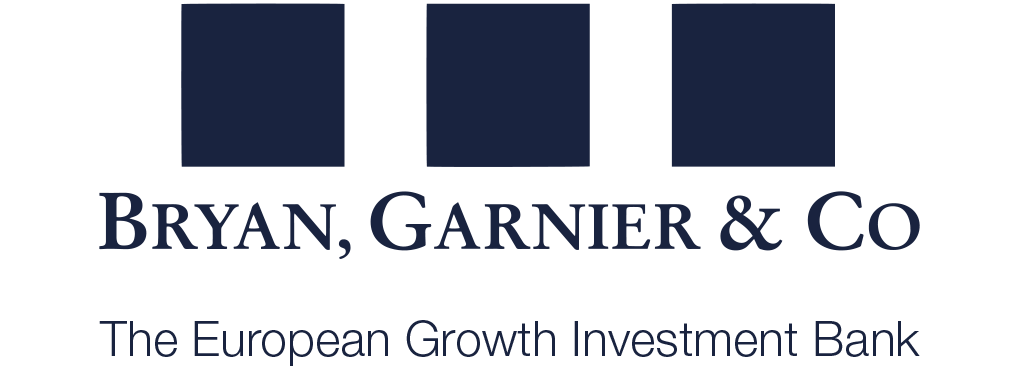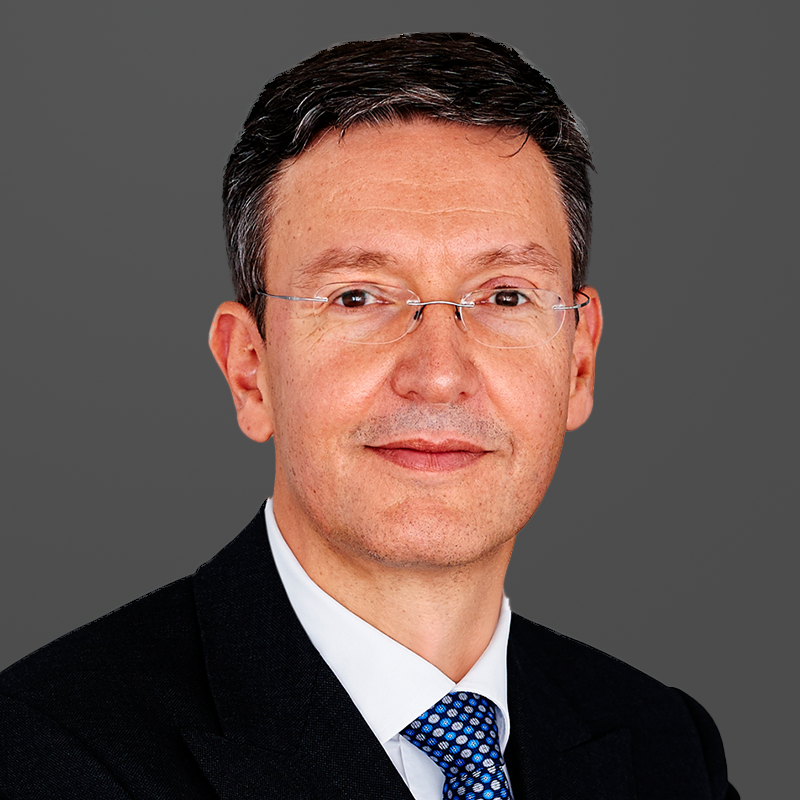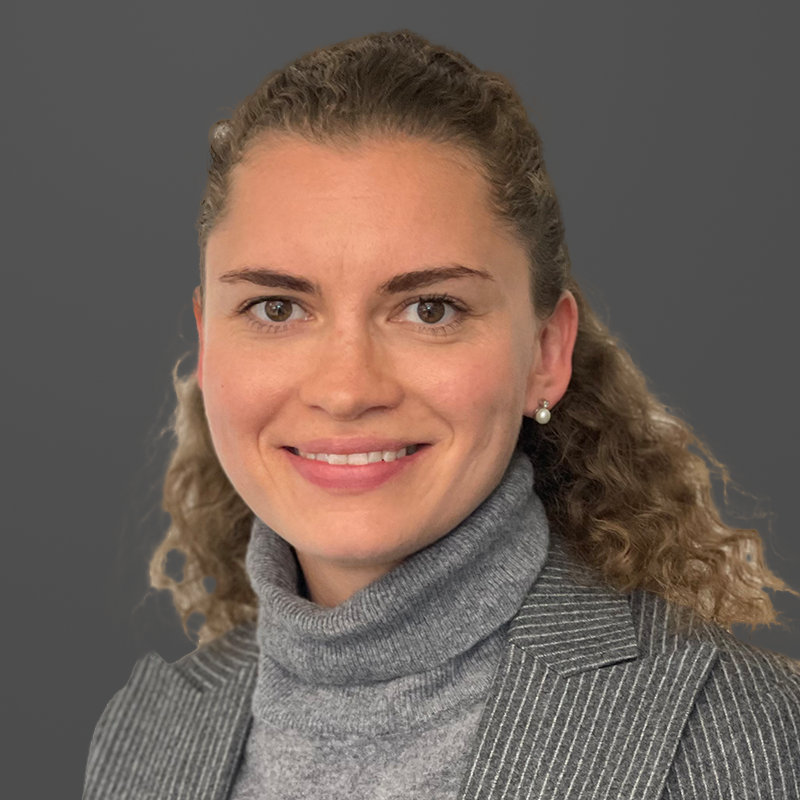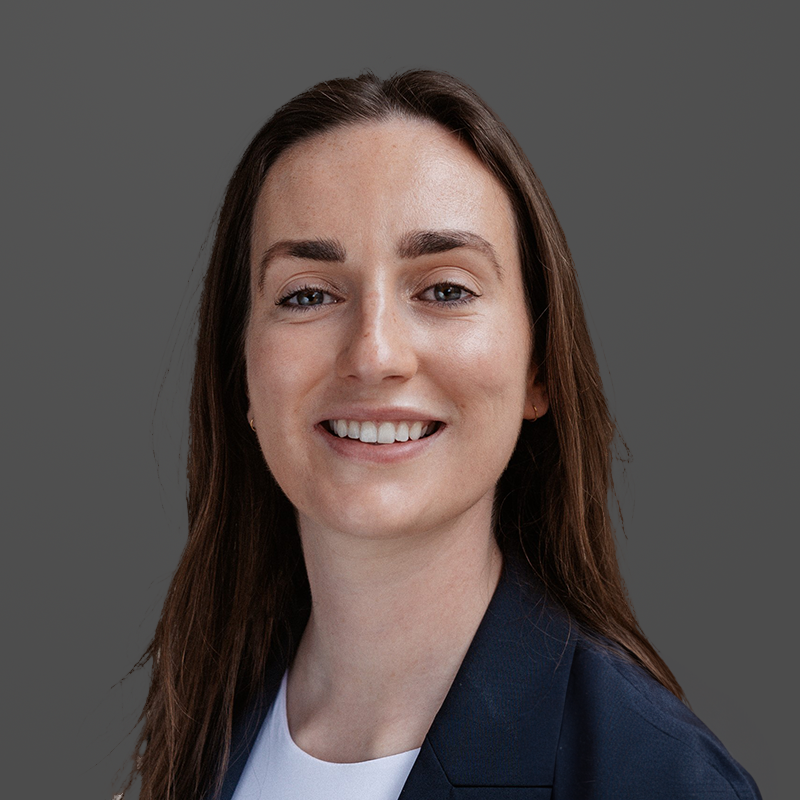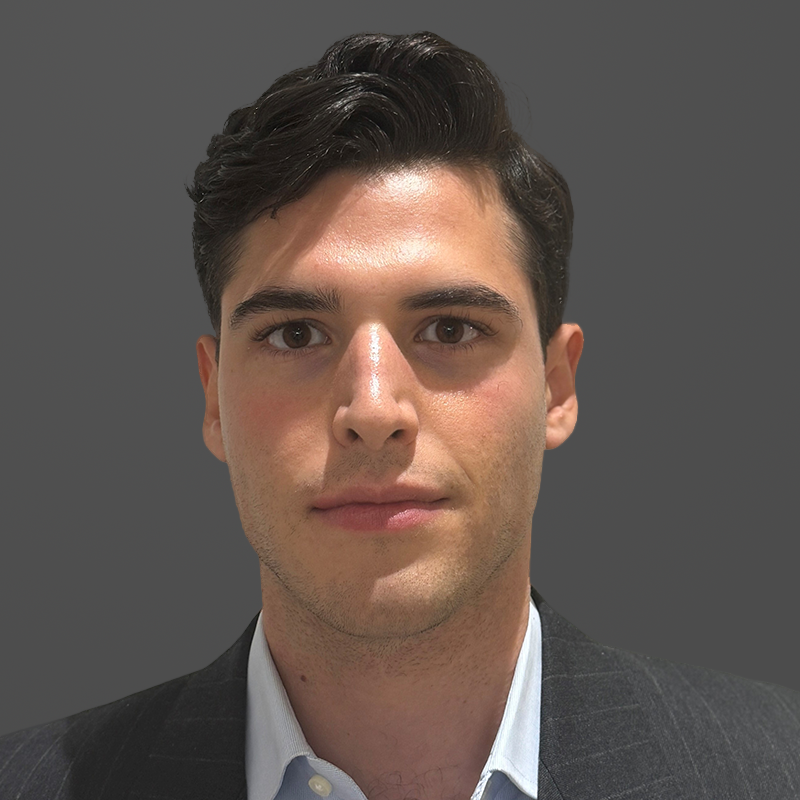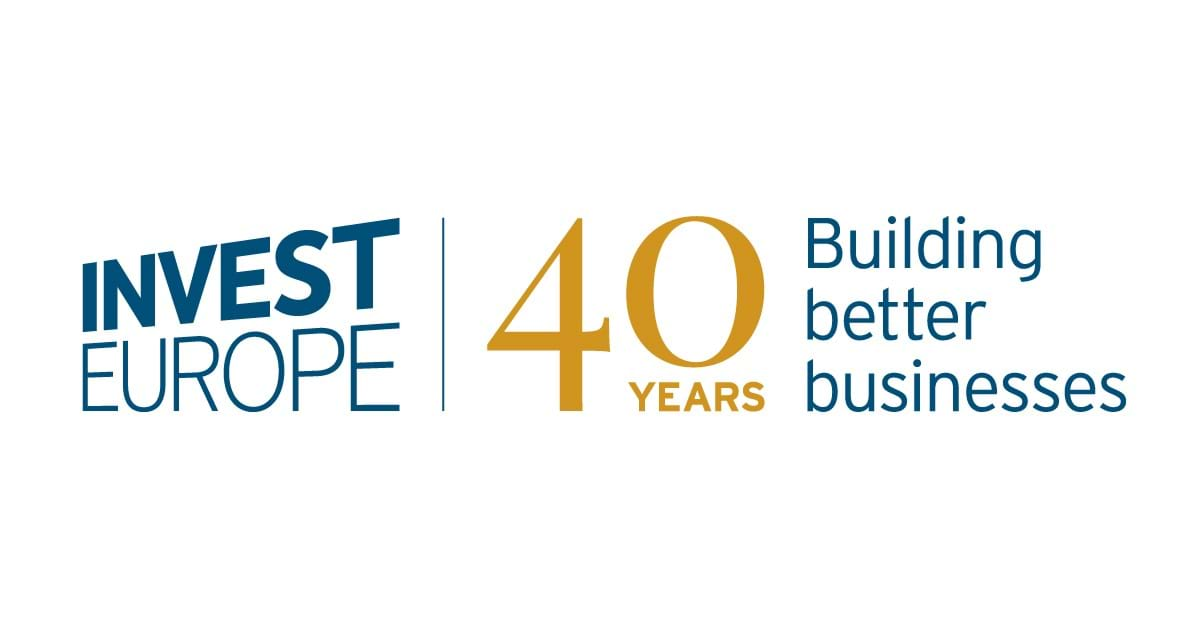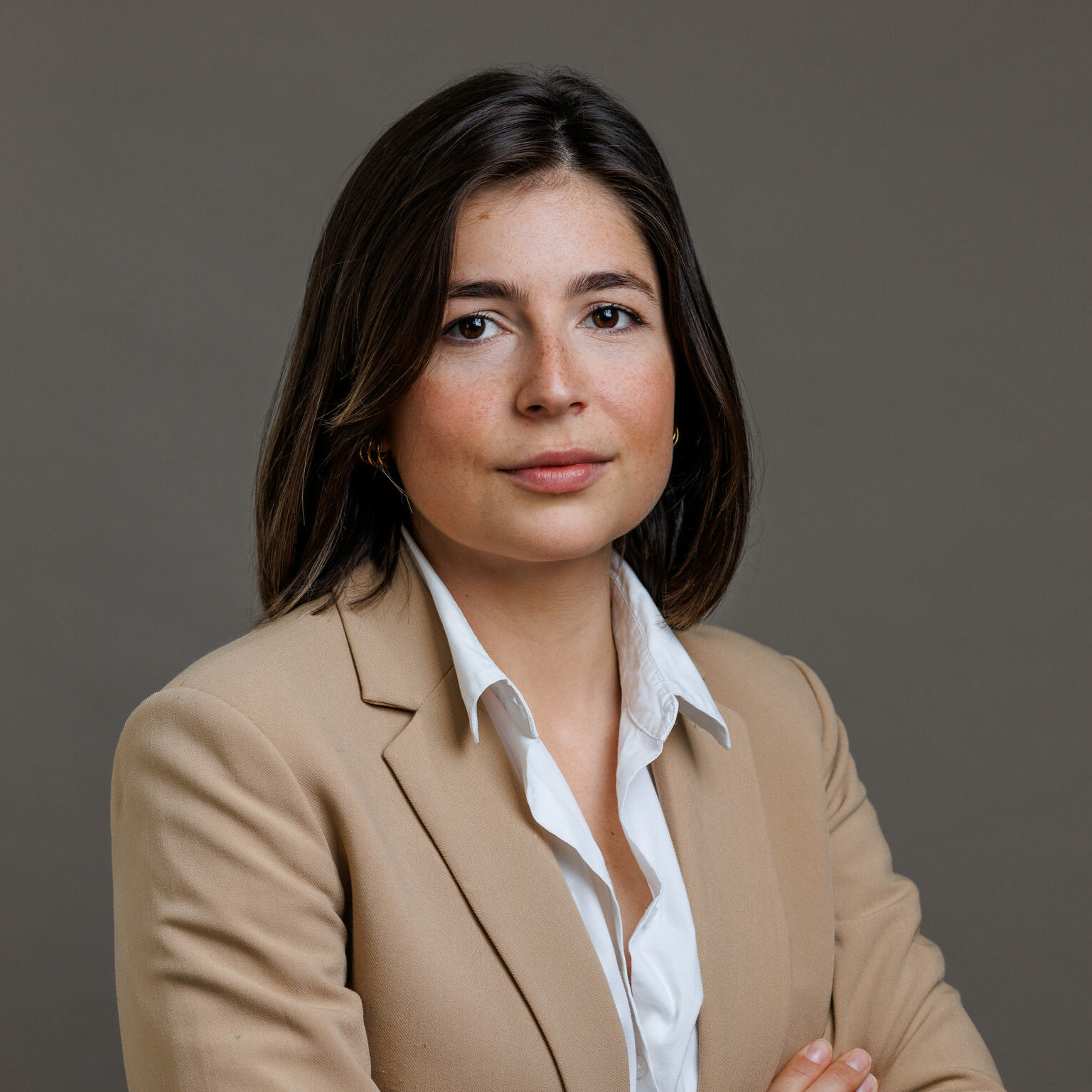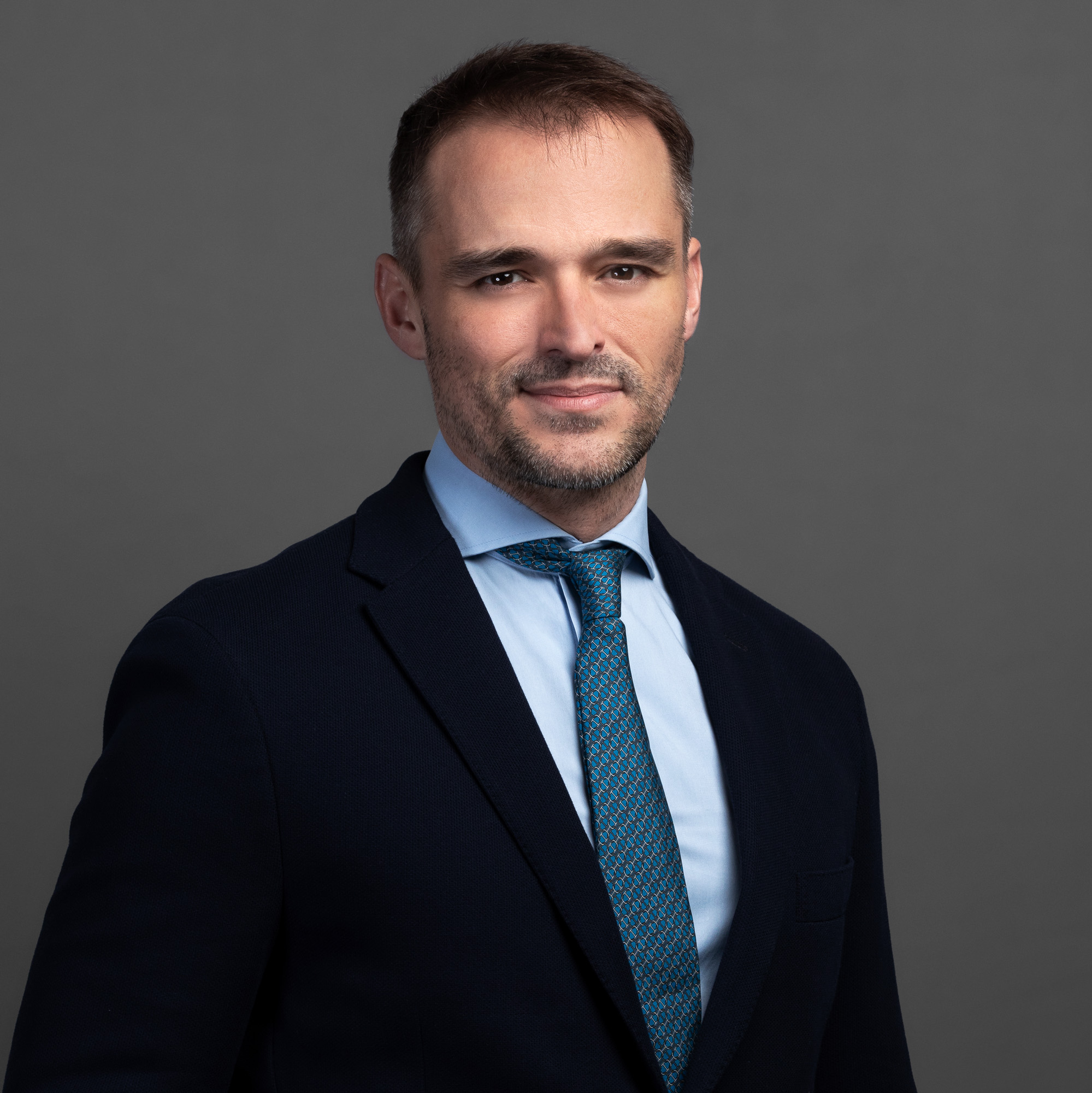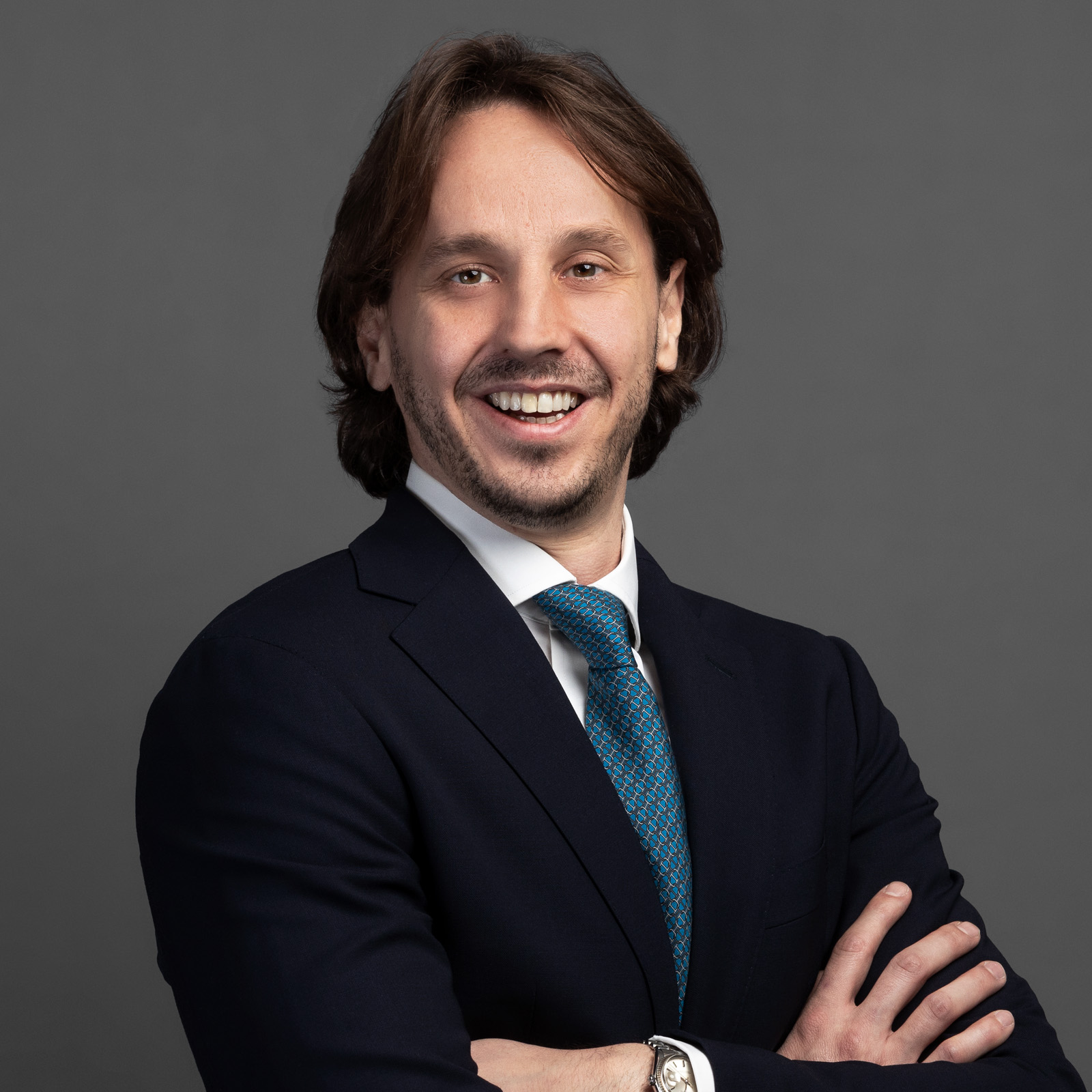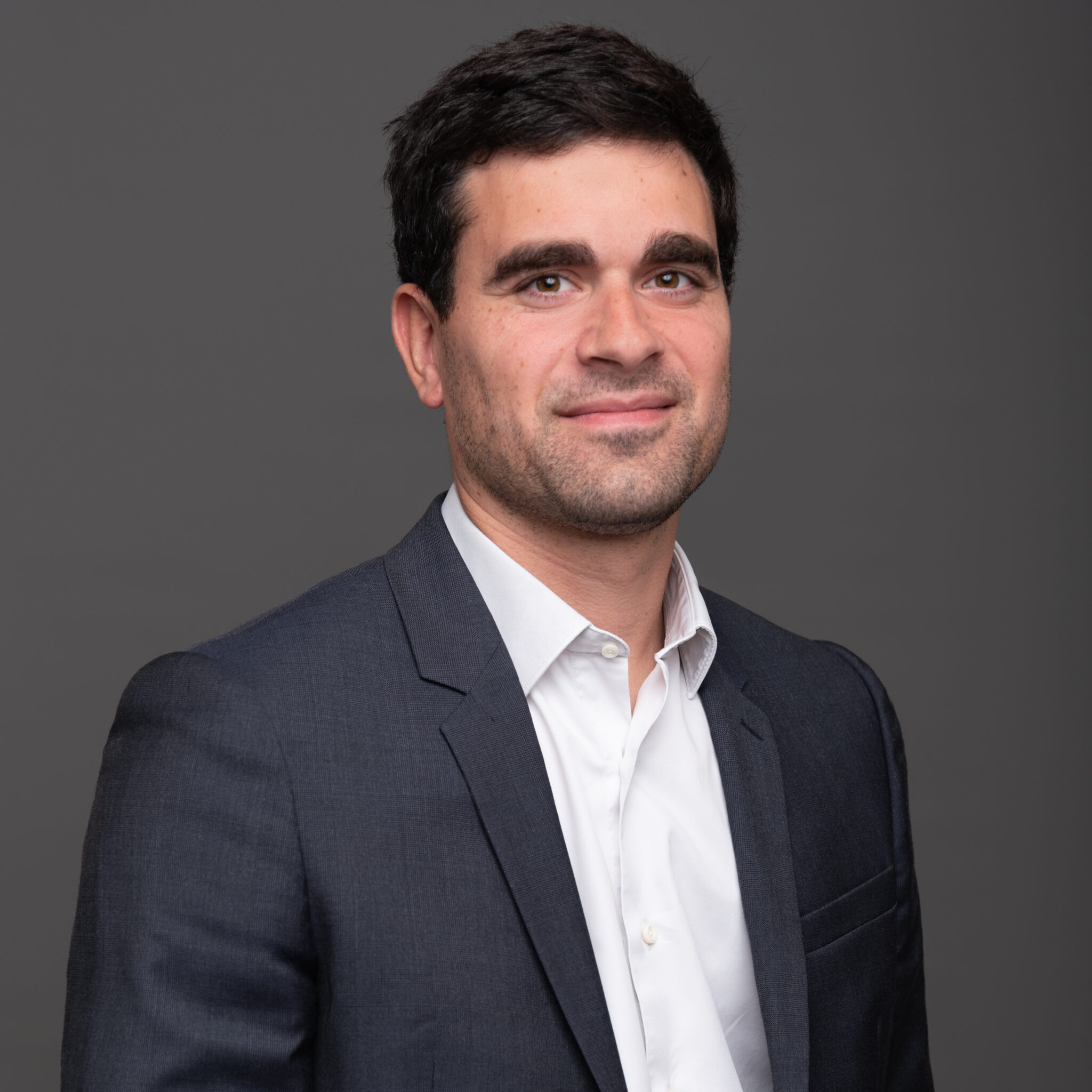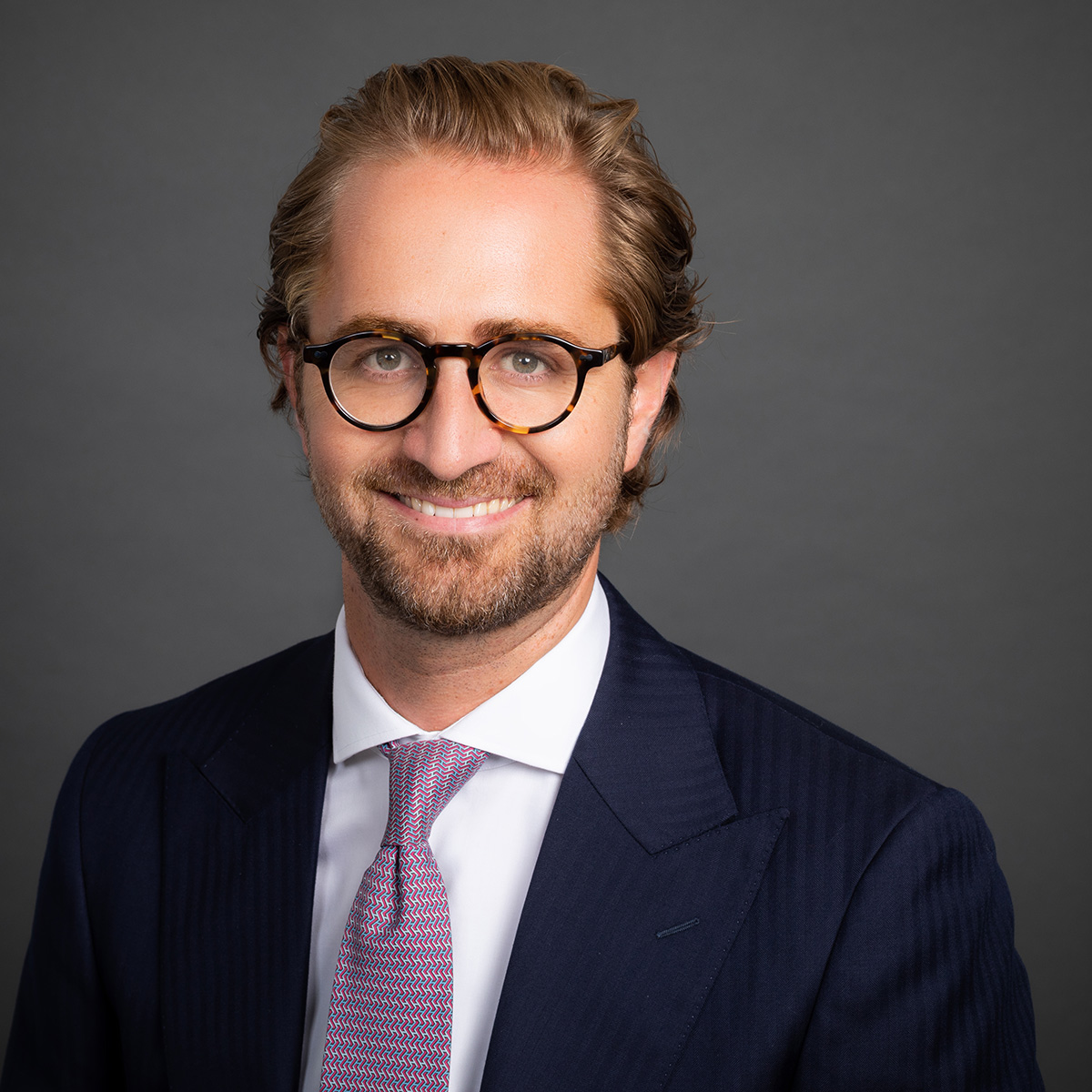BG Growth Series - Abivax
Vanessa Parr
Welcome to the “BG Growth Series“, where entrepreneurs tell us about their inspiring stories, share invaluable insights, and offer practical tips to navigate the growth journey.
In this episode, we feature Abivax, a pioneering biotechnology company at the forefront of developing therapies that harness the body’s natural immune-regulatory mechanisms. Abivax’s work represents a transformative shift in treating chronic inflammatory bowel diseases, offering new hope to patients worldwide.
We sat down with Abivax’s CEO, Marc de Garidel, and Board Member, Corinna zur Bonsen-Thomas, to gain insights into their commitment to innovation and their vision for the future. Their dedication to advancing medical science is evident in their relentless pursuit of new therapies that address unmet medical needs.
Abivax is making significant strides in advancing its lead drug candidate, obefazimod, currently in Phase 3 clinical trials for ulcerative colitis. This innovative approach to modulating the immune response holds the potential to revolutionise the management of inflammatory bowel disease and other chronic conditions.
In its latest phase of growth, Abivax partnered with Bryan, Garnier & Co, which played a pivotal role as the European Lead Manager in their successful USD 236 million Nasdaq IPO. This landmark achievement, the largest ever by a French biotech company, attracted both long-standing shareholders and new specialist investors from Europe and the U.S.
With a strong foundation in scientific excellence and a clear vision for the future, Abivax is poised to continue making a profound impact on global healthcare. Their journey is a testament to the power of scientific discovery and strategic partnerships.
Watch this episode of the BG Growth Series to learn more about Abivax’s pioneering work and their commitment to advancing the frontiers of medicine.
Get in touch
Whether you’re at the outset seeking funding, or an established firm searching for strategic options, our team will provide you with tailored advice to help you reach your goals.
Our transactions
Bryan, Garnier & Co offers a complete range of investment banking services, from growth financing to mergers and acquisitions.
Bryan Garnier strengthens its healthcare expertise with a five-person team led by Uli Kinzel
LONDON AND MUNICH, 3 OCTOBER 2024 – Bryan, Garnier & Co, the leading investment bank for healthcare and technology-related companies, today announces that a five-person team from the M&A and strategy firm goetzpartners, led by Uli Kinzel, will join the pan-European investment bank. Uli Kinzel will become a Partner and, as Head of Healthcare Europe, will support the further expansion of the European healthcare practice from the Munich office.
As Managing Director at goetzpartners, Kinzel built up the pan-European advisory business in the pharmaceutical and healthcare sectors over the past ten years, leading teams in Munich and London. Most recently, he was responsible for several significant sector transactions, including Autolus Therapeutics’ strategic cell therapy collaboration with BioNTech, the venture debt and equity financing of digital health start-up Smart Reporting, and the acquisition of Medgate Teleklinik by OTTO. Prior to that, he led Nomura Code’s Continental European Lifesciences business after co-founding the British investment bank Code Securities, which was acquired by the Japanese banking group in 2005.
Kinzel will be joined by his former team colleague Dr. Josefine Böhm (Vice President) from goetzpartners, who will be based in the Munich office of Bryan, Garnier & Co. She most recently worked as an Investment Associate at a Munich-based impact investor and previously spent five years advising on M&A transactions and financing at Goldman Sachs in Frankfurt.
Three additional team members from Kinzel’s group are moving to Bryan, Garnier’s London office – Youchen Xin (Vice President), Alexandra Walsh, and Edoardo Nappi (Analysts). Youchen Xin, an oncologist with an MBA, has worked on numerous ECM and M&A transactions with life sciences companies at goetzpartners over the past six years, most recently as an Associate Director.
“As we embark on the next phase of growth for our pan-European healthcare platform, we are excited to join forces with Kinzel and his team,” said Hervé Ronin, Partner and Head of Global Healthcare. “Together, we are poised to take our platform to the next level. We share the same passion for healthcare and a common DNA to be the trusted advisor for leading healthcare growth companies in Germany and across Europe.”
“We are delighted to have such an experienced healthcare banker and his established team joining us,” added Falk Müller-Veerse, Partner and Head of Bryan, Garnier & Co.’s German business. “We currently see a lot of potential in Germany, especially in the pharma, biotech, and medtech sectors.”
Advising healthcare companies has been one Bryan Garnier’s core competencies for decades, including advising RNA pioneers Moderna and BioNTech on several financing rounds and IPOs, and most recently advising vaccine group Valneva as Joint Global Coordinator and Joint Bookrunner on its Euronext capital increase.
“In my more than twenty years in healthcare banking, I have had numerous points of contact with Bryan, Garnier & Co. The bank’s life sciences expertise is well known throughout the industry, and I look forward to working with colleagues whom I have known and respected for a long time,” said Uli Kinzel.
Bryan Garnier expands European ECM with addition of new director Jean de Pracomtal
PARIS, 1 OCTOBER 2024 – Bryan, Garnier & Co, the leading investment bank for healthcare and technology-related companies, today announces that Jean de Pracomtal has been appointed as a Director, Equity Capital Markets (ECM). Jean, who is rejoining Bryan, Garnier & Co from Barclays, will help further drive the firm’s pan-European ECM franchise and help contribute to its ambitions of being the leader in capital formation for European growth companies.
Jean has over 10 years’ experience in ECM, five of which were spent at Barclays as a Director in the ECM team, working from origination to full execution on over 100 ECM transactions throughout EMEA, covering IPOs, rights issues, primary and secondary ABBs, converts and private placements across various sectors.
Before his time at Barclays, Jean spent five years, from Analyst to VP, at Bryan Garnier & Co, where he was also in charge of origination and execution of ECM deals mainly in the Biotech/Medtech space, helping to structure and execute a number of the firm’s ECM and private placement transactions.
He holds a degree in Law from Paris University and an Msc in Management from EM Lyon (Corporate Finance). Jean also spent six months in the French Land Army in Saint Cyr Military School.
Pierre Kiecolt-Wahl and Christophe Alleman, Co-Heads of Capital Markets stated: “We are very pleased to welcome back Jean de Pracomtal to Bryan, Garnier & Co as a Director in our Equity Capital Markets franchise. Jean brings a long and established track record of ECM successes in the EMEA market, which will significantly enhance the capital raising capabilities that we are able to offer to our clients across Europe and the UK.”
Jean de Pracomtal, Director, Equity Capital Markets said: “I am delighted to return to Bryan Garnier and be part of a dynamic and growing team focusing on executing challenging and complex transactions with our European growth company clients, their founders, and their investors. Bryan, Garnier has an outstanding track record in ECM, and I look forward to contributing to the team and our partners across the firm, including our sector, research, and distribution teams.”
With offices in Europe and the US, Bryan, Garnier & Co has established itself as one of the most active investment banks in pan-European growth financing via the public and private markets.
Bryan Garnier’s holistic approach to advising clients on the full range of equity, debt and M&A transactions creates a true client-first model, building long-term relationships over the full business lifecycle. As a sector-focused bank since inception, Bryan Garnier specialises in Healthcare, Software & Fintech, Energy Transition and Sustainability, Industrial Tech, Business and Tech-Enabled Services and NextGen Consumer. Bryan Garnier’s mission of investment banking for a better future continues to drive the firm as it backs innovative companies and their investors that are providing solutions to some of the world’s most important challenges.
About Bryan, Garnier & Co
Bryan, Garnier’s is a European growth investment bank helping companies in the healthcare and technology related sectors become global champions. By combining deep sector expertise with an entrepreneurial mindset, Bryan Garnier provides companies and their investors with independent growth strategic advice, and leading access to buyers and capital in Europe, US and Asia
As a full-service investment bank, the firm offering includes private and public growth financing solutions, mergers and acquisitions (M&A) advisory, research insights, and institutional sales & execution. Founded in 1996, Bryan, Garnier & Co is an independent partnership with around 200 employees located in major financial centres in Europe and the US.
Venture Capital Forum 2024 with Invest Europe
Uncertainty is the new normal
We were honoured to once again serve as the Lead Sponsor of this year’s Venture Capital Forum, a premier event for Europe’s LPs and GPs dedicated to venture capital investment. Our involvement highlighted Bryan, Garnier & Co’s continued commitment to supporting innovation and growth within the European Venture Capital ecosystem.
This year, our Managing Partner, Greg Revenu, delivered a highly anticipated Market Overview, where he shared valuable insights on the latest trends shaping the venture capital landscape.
Additionally, Julien Polenne, our Managing Director of Private Capital Markets, expertly chaired the Forum, leading impactful discussions on the future of VC in Europe.
Key Takeaways from the Forum
The Latest Trends in the European VC Ecosystem: Greg Revenu’s keynote speech was filled with data-driven insights highlighting the key trends and challenges currently facing the venture capital industry in Europe.
Short-Term Outlook for VC Fundraising: This in-depth analysis looked into the challenges and opportunities surrounding venture capital fundraising in 2024, amidst ongoing market volatility.
Valuation Challenges: This panel focused on the complexities of navigating valuations in an uncertain economic environment, emphasising the importance of fair value assessments.
Transformative Investments: There was an exploration of high-growth sectors like healthcare and deep tech, highlighting the balance between the risks and opportunities these transformative areas present.
Maximising Exit Strategies: Strategic insights were shared on optimising exit opportunities, which remain a key concern for investors in today’s venture capital landscape.
Our team had the pleasure of connecting with venture capital leaders, exchanging valuable insights, and participating in thoughtful discussions on the future of VC.
We would like to extend our thanks to the event organisers for another successful edition of the Venture Capital Forum, and we are proud to have been a part of shaping the future of venture capital investment.
Invest Europe is the world’s largest association of private capital providers. They represent Europe’s private equity, venture capital and infrastructure investment firms, as well as their investors, including some of Europe’s largest pension funds and insurers. Invest Europe’s aim is to promote a better understanding of private equity that enables our members to invest capital and expertise into improving businesses and generating returns for investors, free from unnecessary regulation and constraints. Invest Europe’s members take a long-term approach to investing in privately-held companies, from start-ups to established firms. They inject not only capital but dynamism, innovation and expertise. This commitment helps create healthy and sustainable companies across Europe, securing millions of jobs and delivering strong returns for leading pension funds and insurers whose members depend on them for their retirements.
Focused Ultrasound: Breaking Barriers in Drug Delivery, Brain Therapy and Beyond
PARIS | September 12th, 2024 – Bryan Garnier is pleased to release “Focused Ultrasound: breaking barriers in drug delivery, brain therapy and beyond”, which offers an extensive analysis of the evolving role ultrasound plays in contemporary healthcare, with recent technological advancements extending its capabilities far beyond its conventional applications.
While High-Intensity Focused Ultrasound (HIFU) has been a mainstay for over 30 years, recent breakthroughs in low- to medium-energy nonthermal ultrasound are presenting groundbreaking opportunities. These emerging technologies provide innovative alternatives or complements to conventional treatments such as surgery, drug delivery, radiation therapy, chemotherapy, and cancer immunotherapy, making them pivotal in modern healthcare.
The focused ultrasound market is experiencing significant growth at a 22% CAGR, to reach EUR 1 billion by 2029. This surge is driven by companies approaching the final stages of clinical validation, alongside robust support from established MedTech and Pharma firms providing financial and strategic backing. These include GE Healthcare, Novo Nordisk, Johnson & Jonhson, among others.
In this white paper, we provide an in-depth look at the most critical developments within this sector and identify key innovators shaping the future of ultrasound technologies.
To explore these insights and learn more about the future of ultrasound technologies, download this white paper.
David and Pierre's story: Secondaries
We sat down with David Laroque and Pierre Leroy, Managing Directors and Co-Heads of Secondaries at Bryan Garnier, to learn more about secondary markets, NotSoLiquid, and joining forces with Bryan Garnier earlier this year.
Can you introduce yourselves and your backgrounds?
David: I began in private equity at Apax Partners, then moved to a family office. After completing my MBA in 2017, I became an entrepreneur, co-founding the boutique investment bank Leuwen. I left in 2021 to start NotSoLiquid, a dedicated venture secondary boutique which Bryan Garnier acquired in April 2024.
Pierre: I started as an M&A banker in 2016 at Rochefort, then moved to BNP Paribas across Brussels, Paris, and London. I developed the secondaries practice at The Family, which eventually led to the creation of NotSoLiquid with David in 2021.
What are your specialities?
David: I am a generalist within tech, but my strengths lie in SaaS businesses, software, fintech, digitalised distribution, marketplaces, and platforms. I’m also well-connected in the European VC ecosystem and understand how to execute secondary market transactions where the underlying assets are venture and growth stage companies.
Pierre: I specialise in tech, with a strong focus on B2B software companies, fintech, and NextGen Consumer.
What have been some of the most memorable deals you have worked on?
David: Our first major deal at NotSoLiquid was with Revolut in 2021. It was a proof of concept, kickstarting the business and setting a standard for European venture secondary deals. It was exciting as we were paving the way and developing our internal workflows. It marked a significant milestone for us!
Pierre: Revolut was indeed our first big deal, and in the meantime we’ve had the chance to work on many more exciting growth-stage names like Stripe, Back Market, Algolia, Ledger, and many more.
What are the highlights of your career so far?
David: Combining finance with entrepreneurship has been a highlight. At the family office, I created a venture investment department, which was an entrepreneurial endeavour. I also co-founded two companies: one focused on tech investment banking and the other on niche financial services.
Pierre: I have three main highlights: leaving investment banking for VC in 2019, creating NotSoLiquid with David, and joining Bryan Garnier.
Why did you decide to join Bryan Garnier?
David: Joining Bryan Garnier allows us to expand our ambitions while retaining an entrepreneurial spirit. We see clear synergies, especially in expanding the secondaries practice across industry verticals. Our expertise in secondaries complements other product teams, particularly PCM, where we foresee a wealth of incoming hybrid financing (primary plus secondary) and company-led tender opportunities. The partnership also significantly broadens our investor reach and credibility, allowing us to operate confidently in all major regulated markets.
Pierre: Bryan Garnier’s extensive network and capabilities will help us better address the growing secondary market in Europe. Their expertise in private placements and equity research aligns with our needs, while the secondary market is quickly becoming an attractive space for their clients.
What are your ambitions with joining Bryan Garnier?
David: Our goal is to integrate and expand the secondary market vertical within Bryan Garnier, making it a core component of their value proposition. We plan to grow our team, extend our geographical reach, and diversify into new sectors, positioning Bryan Garnier as the leader in European venture secondaries.
Pierre: This partnership means managing the secondary presence more effectively and handling larger deals. Our shared focus on stock syndication and investor coverage will enhance our ability to manage secondary transactions.
Where do you see the secondary market going in 2024 and moving forward?
David: 2024 has proven to be a pivotal year for the secondary markets. After a static 2023, we’ve seen significant increase in transactions as companies adapt to the new market conditions. There is a strong need for exits, with billions in European venture and growth assets changing hands as a result. As broader markets show signs of recovery, secondary investors will be even more enticed to deploy capital.
Pierre: The secondary market is expected to grow with an influx of new buyers (as the opportunity set becomes more attractive) and sellers (as timelines to exit increase). A key factor will be whether bid-ask spreads narrow so that transactions can be facilitated. As interest rates decrease, equity investment will increase, creating a more balanced market somewhere in between our current state and the highs of 2021, becoming much more reasonable for deal activity.
Electrifying the future of on-road HDVs
PARIS | July 24th, 2024 – BG IRIS, Bryan Garnier’s research platform, is pleased to release “Electrifying the future of on-road HDVs”, an in-depth analysis exploring the dynamic landscape of zero-emission mobility, industry commitments, and market opportunities in the transition to electric medium and heavy-duty vehicles.
In 2023, passenger mobility hit a major milestone with 31 countries reaching a 5% tipping point in pure-electric transitions, and this is just the beginning:
- By 2030, most MHDV manufacturers are aiming for over 50% zero-emission vehicle (ZEV) sales, with targets of 100% between 2035-2040
- Fleet operators are also stepping up, with ambitious goals to electrify up to 100% of their MHDV fleets by 2030
- By 2035, we expect to see 290k electrified transit buses in key regions and 750k HDV trucks in North America alone, representing markets worth over EUR130bn and USD240bn.
Investment decisions continue to hinge on the total cost of ownership, driven by operational costs and energy efficiency. As electrification progresses, sourcing and manufacturing costs will fall, making every kWh cheaper and more competitive.
Europe and California are leading the charge in electric MHDV registrations, but North America and other developed regions are catching up.
This paradigm shift underscores the urgent need for ZE-mobility infrastructure, with public signals and private investments accelerating adoption and expanding the grid.
To dive deep into this topic and discover more about the transformative shift to electric mobility, the impact on MHDV emissions, and future market trends, download the industry brief.
Get the industry brief
Please complete the form below to receive the brief.
Why your eyeglasses are so expensive with Cédric Rossi, BG IRIS NextGen Consumer Analyst at Bryan Garnier
In a market increasingly dominated by EssilorLuxottica, the cost of eyewear has surged due to significant markups and limited price competition. Cedric Rossi delved into this issue on a recent episode of the Freakonomics podcast, providing a comprehensive analysis of the factors driving up prices.
“EssilorLuxottica owns roughly a quarter of the global market for prescription eyeglasses and more than half the market for lenses,” states Rossi. He goes on to discuss how the interplay of branding, manufacturing expenses, and consumer perceptions contributes to the steep costs associated with eyeglasses. He highlights that while EssilorLuxottica’s dominance allows them to set higher prices, the lack of competitive pressure in the industry further exacerbates the issue.
The discussion then turns to the success of eyeglass disruptor Warby Parker, whose low-cost yet high-fashion $95 eyeglasses have won customers over. “They found a very interesting niche, which is a transparent pricing model,” notes Rossi.
The conversation also touches on the broader implications for consumers and the eyewear market, offering valuable insights into why vision care is becoming increasingly expensive. Rossi’s observations reveal how entrenched industry dynamics and strategic pricing contribute to the high costs we see today.
Listen to the full Freakonomics podcast here
Bryan Garnier’s NextGen Consumer team plays a crucial role in providing comprehensive insights and strategic advice to clients looking to navigate the complexities of the retail market.
Welcome to our Q2 2024 Quarterly Report
In our Q2 2024 report, we capture the key developments and outlooks across Private Placements, ECM and Debt Capital Solutions, alongside Healthcare, Software & Fintech, Energy Transition & Sustainability, Industrial Tech, Business & Tech and NextGen Consumer sectors. This underscores Bryan Garnier's integral role in navigating and facilitating significant transactions amidst evolving market conditions.
Private Placements, ECM, and Debt
Global equity markets had a strong start in 2024, with improved IPO volumes. However, mixed signals from interest rates and inflation have influenced investor sentiment. Continued activity is expected in IPOs and secondary market offerings.
The continued decline in inflation supports the stability of interest rates. Consequently, attention is shifting towards small and mid-cap stocks and non-tech sectors.
In capital markets activity, there is an expectation of fewer landmark IPOs, with a focus on subsequent offerings and convertible issuances.
In private markets, projected fundraising is expected to surpass 2023 levels.
Healthcare
Biopharma
The European Next Biotech index rebounded slightly, up 5% year-to-date despite volatility. There are expectations for a gradual recovery in biopharma M&A and financing, supported by recent IPO activity and strategic acquisitions.
A gradual recovery of biopharma M&A and financing is expected, supported by encouraging early signals such as the return of IPOs on the continent after a period of inactivity.
Medtech
In Q2, the Medtech sector saw a decline in the number of deals, but the value of deals increased, surpassing $5 billion. Medtech outsourcing is consolidating rapidly and is expected to grow at a compound annual growth rate (CAGR) of 8.3%.
A strong recovery of Medtech M&A and financing is already evident in the pipeline and ongoing deals, with increased venture capital activity aiming to deploy capital.
There are also signs of IPOs picking up, which are expected to materialise in the coming 6 to 9 months.
Private care centres
In the clinical market, consolidation efforts prompted regulatory scrutiny, while significant M&A activity continued, such as acquisitions by investment firms. European mental health services experienced growing demand, with substantial deal volumes and ongoing acquisitions in providers.
Despite regulatory challenges, the private health centre sector is poised for rapid expansion, supported by increased investment and the adoption of new care models leveraging digital platforms to enhance accessibility and efficiency in healthcare delivery.
CRO/CDMOs
The pharma outsourcing sector rebounded in valuation since February amid a challenging 2023, with large CROs gaining on average 1x of EBITDA to 17.3x, bolstered by confidence in order levels and favourable regulatory developments.
Looking ahead, the second half of the year is poised for continued high activity as CRO market conditions stabilise. Robust M&A activity is anticipated to continue with a focus on small and midcap segments, driven by strategic buyers and PE-backed platforms seeking specialised capabilities.
Software & Fintech
Enterprise Software
As capital expenditures focus on artificial intelligence (AI) applications, the enterprise software sector faces challenges in digitalization projects. However, there remains strong demand for mission-critical software solutions, notably in Building Information Management (BIM), as evidenced by recent M&A activity such as Hexagon – Voyansi and Nemetschek – GoCanvas, highlighting sector attractiveness to strategic investors. The broader enterprise software market may see accelerated growth only upon recovery in industrial and construction projects.
Fintech
The fintech market has struggled YTD, with most publicly traded names posting negative returns due to stagnant transaction volumes and declining valuation multiples. Despite these challenges, there are indications of potential recovery. Forecasts from the European Central Bank suggest a possible rebound in household consumption and salary growth in the Eurozone, which could bolster consumer purchasing power and stimulate digital transactions, offering optimism for investors in the sector.
Energy Transition & Sustainability
Mobility
Over recent months, the mobility sector has seen increased transaction activity reflecting the maturity phase of each sub-segment. The Battery ecosystem continues to attract substantial capital injections, while Mobility Services providers focus more on profitability, with many achieving positive EBITDA or cash flow. This trend is driving consolidation efforts and heightened interest from private equity firms. In EV Charging, major CPOs are expanding their networks with significant infrastructure investments, while smaller players face growing M&A interest amid funding challenges. Market consolidation in shared mobility, aggregation platforms, and micromobility is a key theme for early 2024, expected to accelerate due to limited early-stage and growth-stage funding in recent years.
Agtech & foodtech
Alternative protein players are navigating a tougher market environment with increased scrutiny on commercial pipelines and industrialization plans. Fundraising now targets companies with strong operational and capital efficiency, amid opportunities in reduced round sizes and lower valuations for investors in food, feed, or ingredients sectors. There is significant potential in biologicals, driven by macro-trends like climate-induced abiotic stress, stricter regulatory controls on phytosanitary products, and a growing focus on soil health. Fundraising is poised to accelerate as firms gear up for commercial expansion. Positive outlook remains for alternative proteins, with critical considerations on unit economics and business models. Early signs suggest investors are reassessing sectors like indoor farming following recent market adjustments.
Green & recycled plastics
New recycling techniques are emerging to address the limitations of mechanical recycling, traditionally favoured in the plastics industry (with 99% of recycled content) despite yielding lower-quality material. Chemical recycling is gaining traction as an appealing alternative, enabling the production of high-quality new materials comparable to virgin polyester. Fiber-to-fiber recycling is also gaining momentum in the textile sector as fashion brands strive to achieve sustainability goals. Recent milestones in fiber-to-fiber recycling development, such as those by chemical recyclers, are addressing industry needs.
Investment activity in the plastic recycling ecosystem has increased globally by four to five times since 2018 and is expected to benefit from tighter regulations, which will boost demand and efforts to expand the sustainable materials industry.
Green gas & biofuels
Investment in biofuels is increasingly focused on biogenic waste, residues, non-food crops, and non-biological feedstock, intensifying competition for feedstock access and potential shortages. This shift underscores the need for innovative production enhancements and infrastructure investment. Concurrently, managing renewables to meet sectoral demands and mitigate grid congestion remains critical.
Biofuels investment has been dynamic, especially outside Europe where regulatory constraints are less stringent, allowing mature players to expand. Despite opportunities for consolidation and asset optimization, challenges persist in pricing and scaling alternatives. Future efforts will prioritize resolving feedstock bottlenecks and securing commitments for significant greenfield projects.
Industrial Tech
H1 2024 has seen further acceleration of financing activities and M&A transactions in the sector. Major strategic acquisitions in recent months and emergence of new domains like AI security have sparked a new wave of market activity in cybersecurity, with deal count in the first half of the year already exceeding that of 2023.
In industrial and simulation software, improvements in market conditions have encouraged companies to re-enter the market or initiate their first strategic operations, with significantly stronger financial and profitability metrics and improving confidence. The market is expected to continue its recovery, with several landmark deals anticipated in the second half of the year.
In the industrial automation sector, there is continuous consolidation around the topics of AI and 3D printing, alongside more traditional players seeking economies of scale.
Business & Tech-Enabled Services
Digital Media
The digital media sector is witnessing a shift towards data-driven marketing strategies, with significant advantages in customer acquisition demonstrated by high-growth companies. AI-powered technologies like chatbots and automated marketing are becoming integral, with widespread adoption among marketers enhancing operational efficiencies. Leveraging creators and influencers remains a potent strategy for brands, delivering competitive ROI comparable to other channels, driving the sector’s annual revenues past US$20 billion globally.
Looking ahead, the phase-out of third-party cookies by Google in Chrome is poised to reshape digital advertising, prompting a pivot towards first-party data strategies and contextual advertising solutions. M&A activity is expected to remain strong, driven by consolidation, the rise of tech-enabled service providers, and investment in emerging niches such as social commerce and the creator economy, fuelled by continued private equity interest.
Education
The Edtech market has expanded across all educational levels but faces declining funding since 2022, expected to persist into 2024. The Learning Management Systems (LMS) segment is booming, driven by mobile learning, AI advancements, and corporate training demands, set to grow significantly by 2030.
Looking ahead, consolidation in education through multi-specialist groups will intensify, leveraging cross-selling opportunities and operational efficiencies. Financial investors remain keen due to predictable revenues, high margins, and ESG priorities, though valuation multiples are stabilizing. Tech Bootcamps emphasizing practical digital skills training are poised to attract more working professionals and government interest in reskilling and upskilling initiatives.
NextGen Consumer
Consumer, retail & leisure M&A deal volume in Europe and North America declined in Q2, with strategic acquirers dominating (67% of deals), while PE interest rebounded notably in North America (40% of deals in June). Despite political uncertainties, the European market remained more active than North America.
Looking ahead, the consumer M&A market is poised for a rebound supported by easing inflation and stable interest rates. Corporates are expected to pursue strategic acquisitions to consolidate market positions and integrate fast-growing niche businesses. Financial sponsors are also likely to increase deal activity as they seek exits and deploy capital from recent fund raises.
Paul de Mestier's story: Healthcare Investment Banking Partner
We sat down with Paul de Mestier, Partner at Bryan Garnier, to learn more about his career path in healthcare investment banking.
Can you tell us about your career background and how you got into healthcare?
I started as a Healthcare Analyst at ABN AMRO before transitioning to a Healthcare Relationship Manager role at the affiliated Neuflize OBC bank. Before joining Bryan Garnier, I worked as an Associate Director for M&A Healthcare at Philippe Hottinguer Finance.
Throughout my career, I’ve aimed to build long-term relationships and deepen my expertise in the sector, covering various subsectors such as pharma, Medtech, and services. This focus has helped me gain a thorough understanding of the sector’s ecosystem, which is crucial when working with entrepreneurs who are looking for knowledgeable advisors.
Why did you choose M&A for your career?
Advising clients on significant strategic decisions and contributing to their growth and success both intellectually stimulating and highly satisfying. I believe that the most fulfilling part is building and maintaining a strong relationship with clients and becoming a trusted advisor.
I enjoy working with founder-owned or family-owned companies because the advisory role feels impactful. Advising entrepreneurs involves addressing fundamental business strategy and economic questions to help them find the best path for their company’s growth.
I enjoy working with founder-owned or family-owned companies because the advisory role feels more impactful.
What was the dynamic of Bryan Garnier Healthcare team when you arrived?
When I arrived at Bryan Garnier, we were boosting the M&A activity within the Healthcare practice, that was mainly known for its successful ECM deals including BioNTech, Moderna, and Valneva. We’ve since established ourselves in this vertical and expanded our reach to include Germany, the Nordics, the UK, and the US. We handle M&A, ECM, and private placements, and we can confidently say that we have significantly increased our footprint.
What initiatives have you launched since joining Bryan Garnier?
One of my key initiatives has been empowering junior team members by guiding them in identifying and contacting the right people. We identify and reach out to every relevant player, attend specialised fairs across Europe, and build deep relationships within our target subsectors. I also spent a lot of time developing a healthcare services practice and stepping up our M&A efforts alongside Hervé Ronin.
We are currently creating an ecosystem for healthcare companies to foster business development, have direct outreach and team collaboration.
What has been one of the most memorable deals you’ve worked on?
One standout deal was with CMN, a company owned by doctors with no business strategy or financial background. We presented them different options and found a strategic investor who was a great fit to help them grow. This deal was particularly challenging because the nuclear medicine sector is fragmented and not well understood by financial investors in France. We managed to secure a company valuation at a much higher multiple than the market average, using a comprehensive approach and crafting a strong pitch to investors.
What advice would you give to junior bankers?
Be curious, master your fundamentals early on and if possible, try to be sector specialised. Understanding the intricacies of a sector will make you more relevant in conversations with decision makers. Also, don’t be afraid to make cold calls and reach out to potential clients. Building relationships and showing initiative are crucial for development in this field, as this not only builds credibility but also leads to more meaningful and successful collaborations.
What would you tell your 25-year-old self?
Again: Learn the basics thoroughly and early on. My path was unconventional, and I had to pick up fundamentals later in my career, making the initial stages especially intense. Taking the time to master the technical aspects early on can make things easier down the line.
Understanding the intricacies of a sector will make you more relevant in conversations with decision makers.
